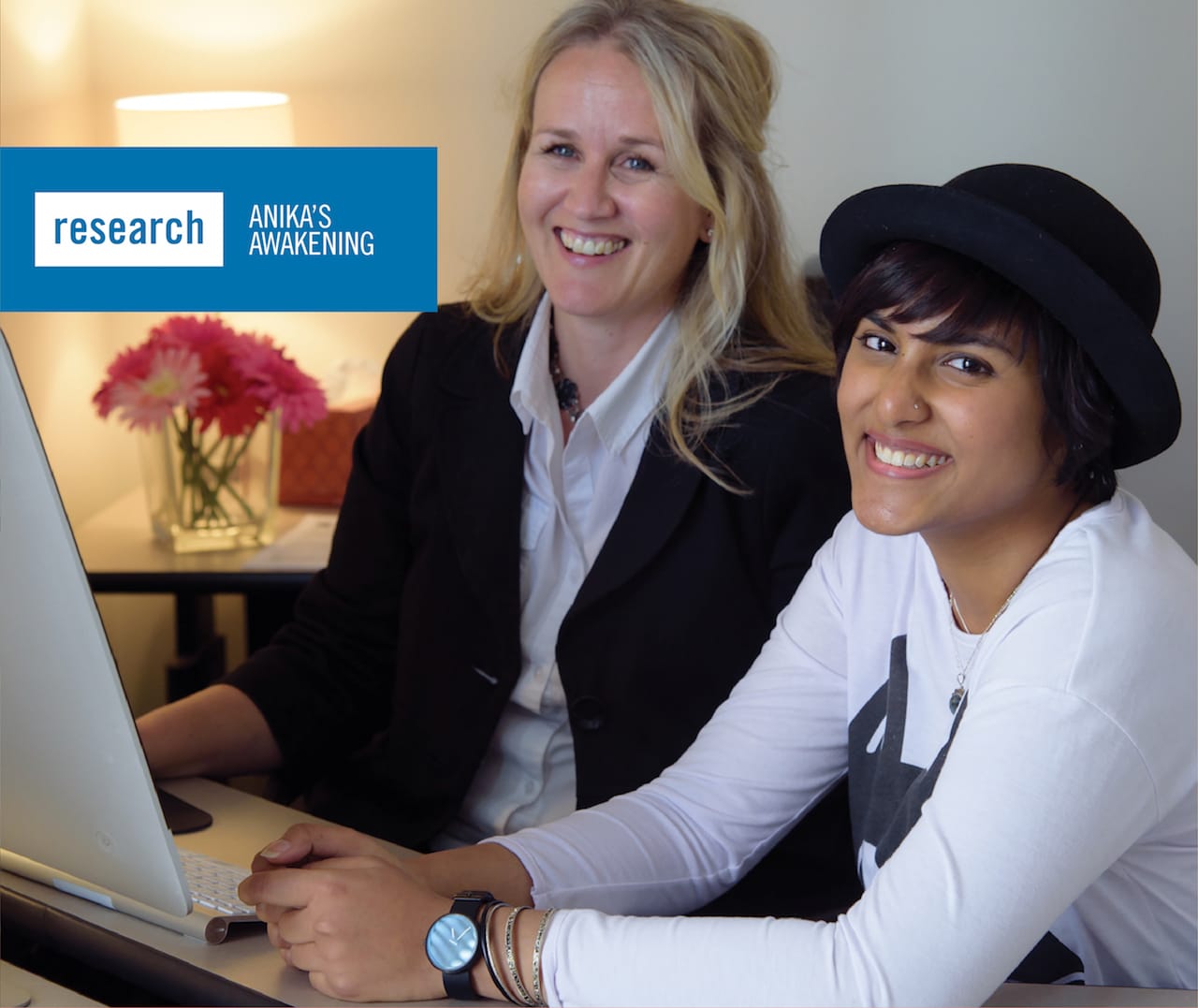
Anika’s Awakening
“Looking back on my life, before starting my digital story, to my life now, it’s like an awakening. I was catatonic. I was struggling just to get out of bed in the morning. Now I’m doing something new every week. Many of these involve doing things I am afraid of. I’ve wanted to do so much in my life since my cancer experience and I’m at a point in my life where I can do it.” ~ Anika Haroon
Last September, Anika Haroon, a 26-year-old university student and cancer survivor, took part in a research study involving digital storytelling. She was doing it to help others. Anika didn’t know it would initiate such profound healing in her own life.
“The participants initially agreed to take part in the research study for altruistic reasons,” says Dr. Catherine Laing, a University of Calgary nursing professor and principal investigator in the Kids Cancer Care-funded research project that explored the therapeutic value of digital storytelling for childhood cancer survivors and patients. “Although their motivation was to help others and to add to research, they all experienced unexpected therapeutic value. They didn’t expect it to be so meaningful.”
Sixteen children, adolescent and young adult cancer patients and survivors participated in the study. They began by meeting with Michael Lang, a digital storytelling facilitator and research assistant in the study. Working one-to-one with Mike, the participants dug into emotional archives to find their story—beyond a simple, chronological retelling of events. They later selected the words and images to represent their story—be it photography, art, video, music or poetry—before finally composing, recording and editing their story.
After producing their digital stories, each participant met with Catherine for one-to-one interviews, where they explored their experience of the digital storytelling process.
Catherine later shared a selection of the digital stories with 11 health care providers, who were also interviewed about their experience of viewing the digital stories.
What came out of the digital storytelling process was surprising—for Catherine and the participants themselves.
“Many of the adolescent and young adult cancer survivors said they were struggling with mental health issues,” says Catherine. “They were struggling with fear, depression, anxiety, learning difficulties, but they were keeping it to themselves. The digital story helped them make sense of a deeper part of their cancer journey and come to terms with it.”
Surprisingly, it wasn’t the cancer itself they were struggling with. It was the emotional fallout of their cancer that was the issue—be it damaged relationships, shattered body images or impaired physical or cognitive function.
The research findings could have major implications for long-term follow-up of pediatric cancer survivors, calling for a stronger focus on mental health.
“Right now, our long-term follow-up focuses primarily on the physical issues related to cancer treatment with much less attention given to mental and emotional health,” says Catherine. “This research shows that we need to find creative ways to address mental health with this population because, while most of them spoke of mental health issues, they also said they would never see a psychiatrist.”
Catherine’s interviews with the health care providers revealed that there is tremendous value in making digital stories available to health care providers. These professionals noted that while viewing the story they were watching as a person, not as a health care professional. Because the patient wasn’t in the room with them, they didn’t feel the need to respond as a health professional. As a result, they were freed up to fully feel the emotional impact of the videos.
“It’s a call to compassion,” said one health care professional. “We can become disconnected from our jobs. These stories are a good reminder of why we are here.”
Although childhood cancer is a different experience for each person, what survivors do share in common is a need to make sense of this life-changing experience at some point in their lives.
“Something as little as a video can totally change a person’s life,” says Anika. “I am living proof of that.”
Dr. Catherine Laing is part of an inter-disciplinary research team, led by Dr. Nancy Moules, who holds the Kids Cancer Care Foundation Chair in Child and Family Cancer Care. Exploring the less visible scars of childhood cancer, this dynamic research team is helping to improve programs and services for children and families, giving survivors like Anika a chance to heal-–body, mind and spirit.
